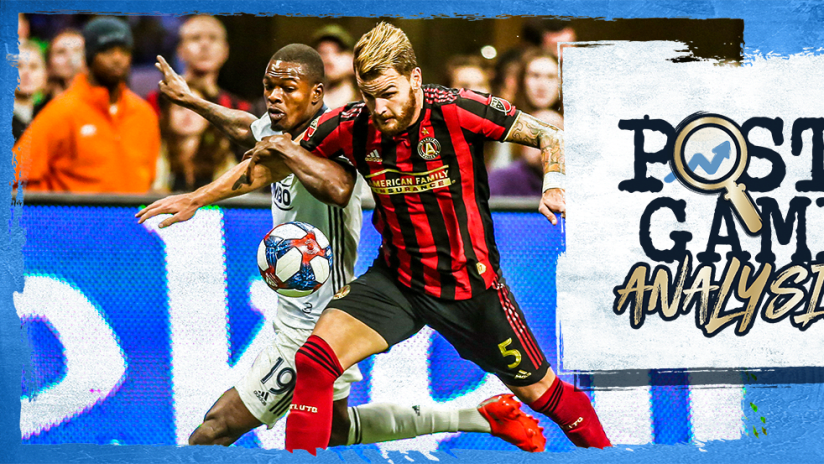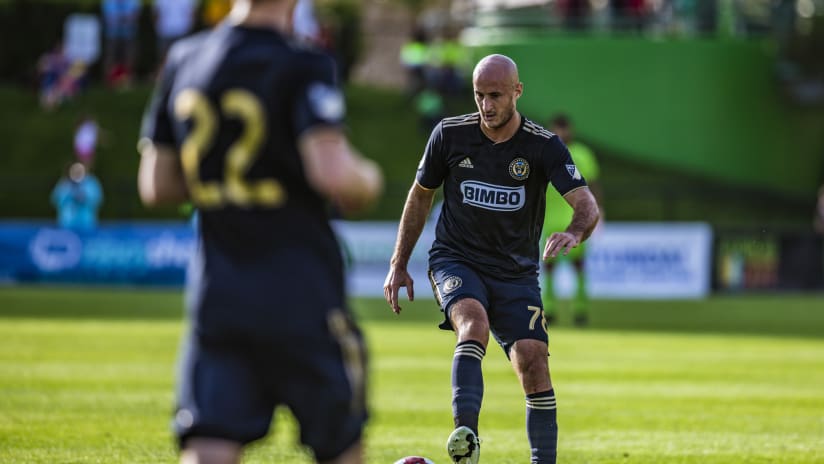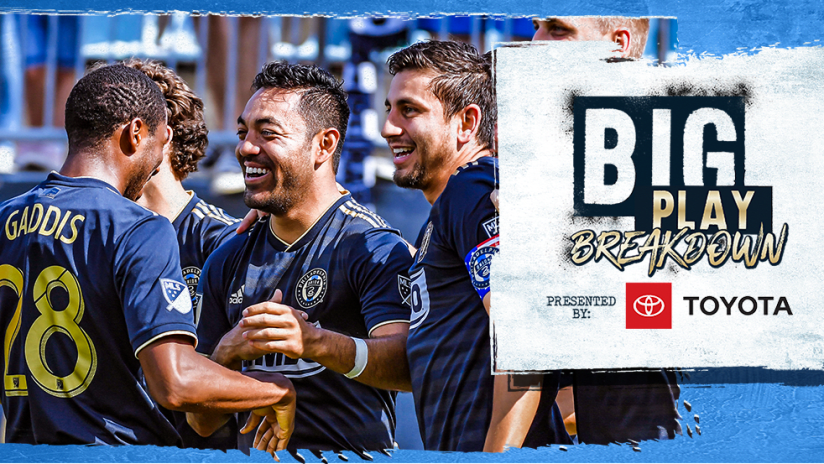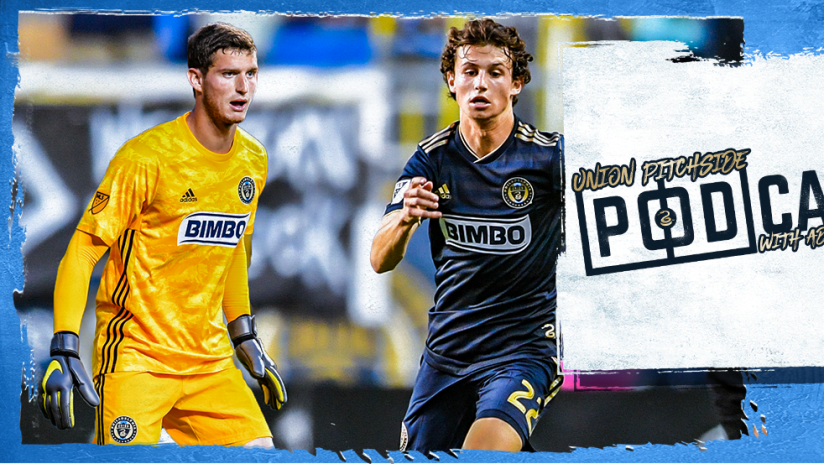In a Q&A last offseason, Ernst Tanner highlighted a famous quote from Jurgen Klopp that boils down to this: An effective counterpress is the best playmaker. Klopp’s theory was sound — when you win the ball close to the opponent’s goal, and you attack that goal before the opponent has re-organized defensively, you are eliminating two of the more difficult hurdles an offense must clear before it can generate shots.
There will undoubtedly be times in 2019 when the Union’s counterpress acts as primary playmaker, but Sunday night was not one of them. Instead, it was just smart, organized pressure that did the trick, along with some eye-opening passes from homegrown debutante Brenden Aaronson.
Attacking transitions
By disconnecting Atlanta’s back line from its attackers, Philly created turnovers in the attacking half and looked to attack before the home side could reset. This is fundamental to the team’s chance creation this season, and both Marco Fabian and Brenden Aaronson have been key to forcing these turnovers.
In last week’s Big Play Breakdown, we looked at how Fabian read plays and became the second pressing player high up the pitch. Cory Burke and Fafa Picault joined with Aaronson to create those turnovers, with a narrow midfield in support to make Atlanta wary of playing vertical passes between the lines.
Once Philly turned Atlanta over, they needed to play forward as quickly as possible to catch the Five Stripes before the defense was set.
Below, you can see this week’s Big Play Breakdown, in which Brenden Aaronson and Cory Burke immediately break forward after a turnover.
And in this clip you can see how a momentary delay in playing forward — even with Warren Creavalle’s intelligent run into space in the center — makes getting through Atlanta’s defensive lines more difficult.
Line of confrontation
An important part of Philly’s defensive success against Atlanta — they allowed only two shots on frame all match, and one was a sensational self-created bicycle kick from Josef Martinez — was their respect for the zone in which they met Atlanta defensively. The strikers did not push too high and separate from the midfield, and the midfield did not fly out wide defensively and expose the center. As a result, Atlanta struggled to move the ball into the center once they reached the final third, and that central zone is where the most dangerous shots come from.
Look, for example, at Atlanta’s shot chart. Three from the center of the box, with one (the goal) an angled header and another an audacious bicycle kick.
By keeping to their line of confrontation, Philly was able to control the space between ball and goal. Atlanta doesn’t send may players other than Josef Martinez running through the back line, so the Union could play relatively high without too many worries. The Atlanta center backs, then, needed to find someone checking into a channel or wide to the touchline in order to advance the ball. The Union knew that without Ezequiel Barco starting, Frank de Boer’s side was bound to try and work through Darlington Nagbe and Pity Martinez up the left. They remained tight to both players and instead asked Jeff Larentowicz and Eric Remedi to be the ball movers. Nope.
Unless Leandro Gonzalez Pirez was able to take space effectively without being closed down, Atlanta began to look extremely limited in attack. And when the talented defender did take his space, Philly made it very difficult for him to connect with the attackers; only two of Gonzalez Pirez’s passes into the center of the final third found the feet of a teammate.
How well did this work for Philadelphia? Even when Atlanta was pressing for a tying goal in the second half Pity Martinez rarely got on the ball in dangerous areas. Additionally, Darlington Nagbe wasn’t able to pass into the box with any regularity, meaning Atlanta didn’t have any attacking impetus through the center of the pitch.
Executing these tactics takes exceptional team coordination, so it’s encouraging to see the Union improving on it week over week. They will need to do so again to defeat a Columbus Crew side that has been strong defensively through the opening games of the 2019 season.
The Crew roll into Philly at 7:30 p.m. ET on March 23.













